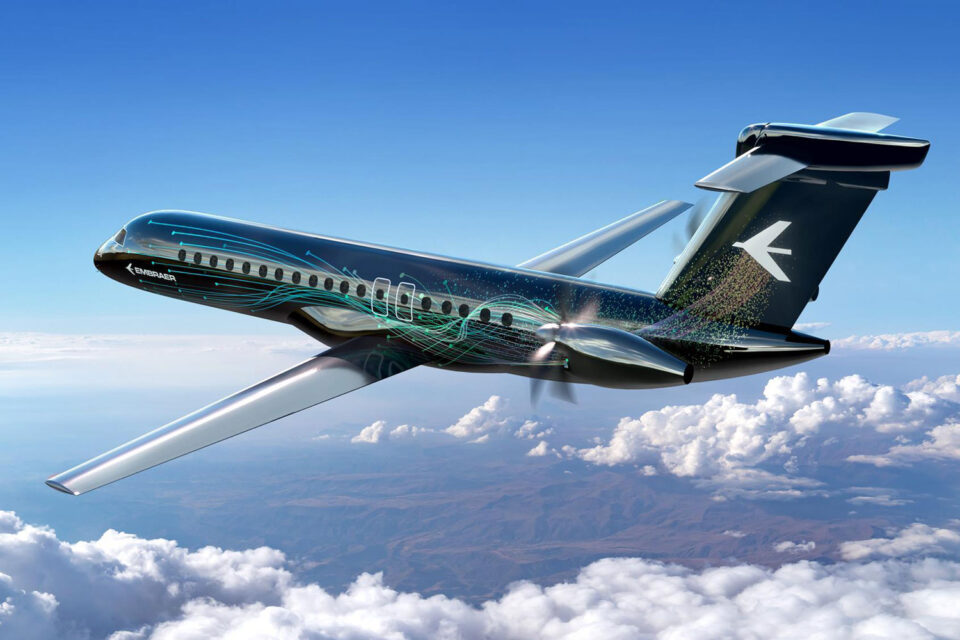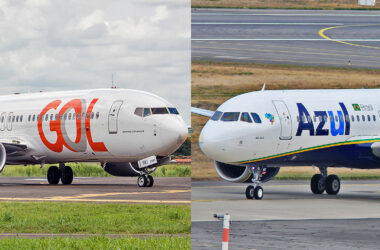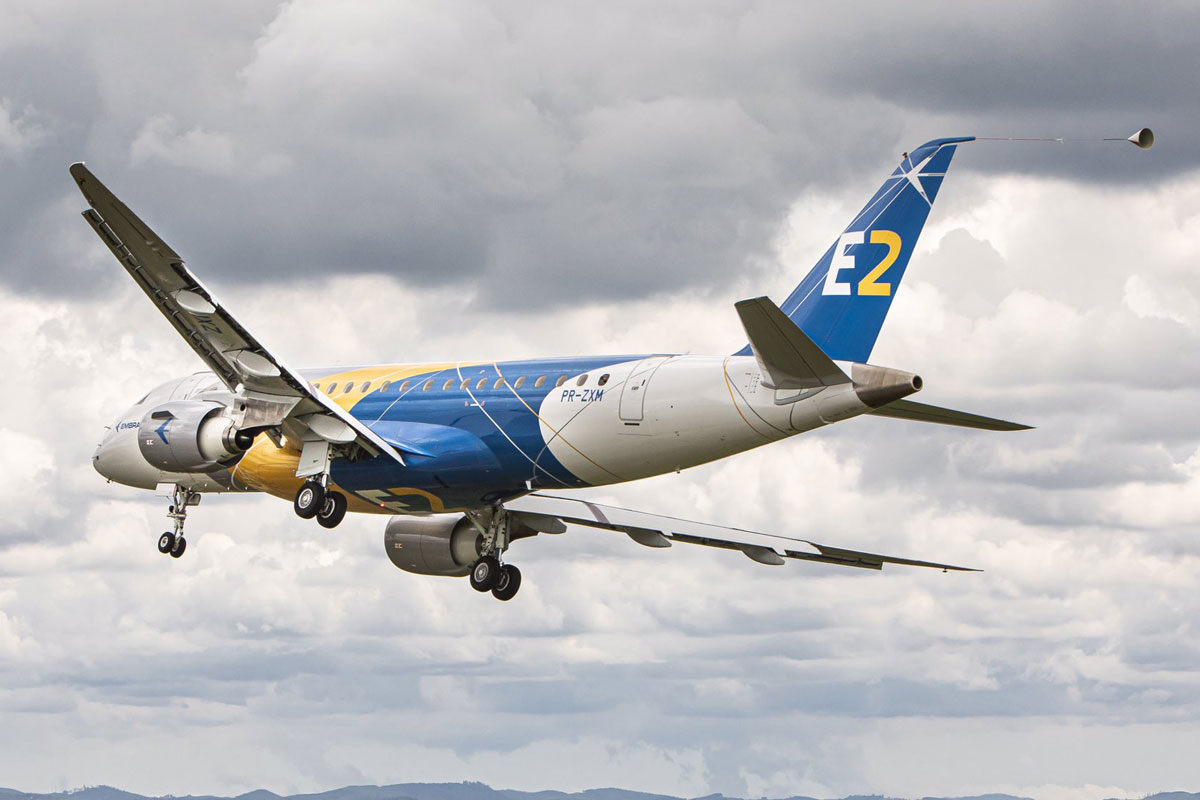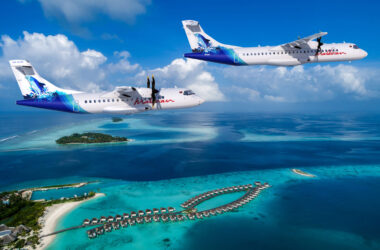Embraer is about to announce a program postponement of its new advanced technology passenger turboprop, according to Aviation & Week.
The aircraft intends to occupy the niche of 70 to 100 seats with a proposal that is more efficient than models such as the ATR and Dash 8. For this, the Brazilian manufacturer is betting on a fuselage shared with its E2 jets, rear engines and a reduced ground height to facilitate operations at airports with modest infrastructure.
However, economic, market and technical conditions would not be right at the moment, according to Aviation & Week.
To be successful with the new plane, which has not yet been named, Embraer depends on a considerable efficiency gain, both in consumption and performance, in order to offer a product that is irresistible to customers who today operate not only turboprops but also regional jets.
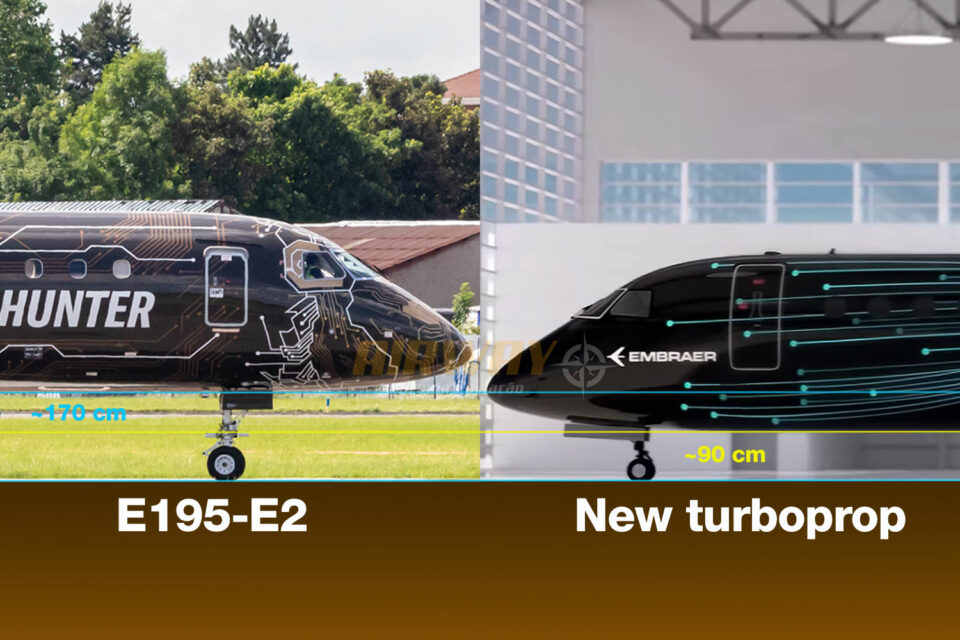
The company has a dilemma regarding the type of propulsion for the new airliner. Originally, it stated that it will use common turboprop engines, but could receive more modern technologies such as hybrid-electric or hydrogen in the future.
There are talks with Pratt & Whitney and Rolls-Royce for the supply of engines, but no details of the technical characteristics have been revealed.
More than 250 letters of intent
Another factor hampering a development schedule at the moment is supply chain issues, which affect aircraft production. As long as this situation persists, E-Jets deliveries will be compromised, making any other new project difficult.
In Farnborough, Embraer had planned to launch the program at the end of this year, with the expectation of delivering the first aircraft in 2028.
The company was optimistic about the project to the point of predicting savings of 15% in operating the aircraft compared to the ATR, but offering 25% more seats and a 20% higher speed. The first market surveys yielded at least 250 letters of intent from potential customers.
